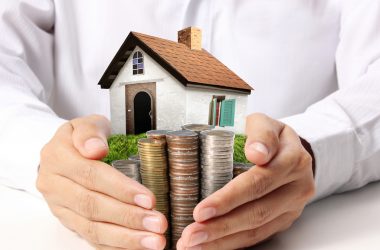
“A funny thing happens in real-estate. When it comes back, it comes back up like gangbusters.” So says American businesswoman and investor Barbara Corcoran. And it is true. The real estate world is like a series of intense waves, not unlike other investment venues like the stock market. Regardless of the housing tsunami’s up, down, and up again cycles, most experts agree that property is always a solid asset. Here are some excellent tips for surfing the waves of investment properties.
Research
If you can find a real estate agent with experience in flipping properties for a profit, that is ideal, but do your own research too. You are the best resource you have in this case. Much of the same information that an experienced investor has is available to you as well. It may be a little difficult to find for first-time property investors, but it is accessible.
Get advice and experience from friends or friends of friends that have ventured into property investment. Find out how they pursued their purchase and if they used any agent that they give the thumbs-up to.
Consider buying locally, as you undoubtedly already have the knowledge of the area from purchasing your first home. Use this experience to your advantage.
Budgeting
At the start, determine your financial limits for investing, allowing for unforeseen expenses that may arise from repairs and the like. A good way to do this is to calculate your fixed costs. That is, add up the expenses that you know you will have each month regardless of anything else. Then, you’ll want to create a number that represents the pesky expenses that creep in. Assume there will be maintenance needs every couple months and double that price to keep your wallet covered.
The Down Payment
Buying a second property is more challenging than your first home purchase because the down payment is higher. Investopedia.com’s columnist Tim Parker elaborates, “You will need at least 20 percent, given that mortgage insurance isn’t available on rental properties.” Since the down payment percentage is quite a bit higher on an investment property, this is an expense you’ll want to factor into your budget.
Do your own repairs
Wherever possible, perform your own maintenance on your new property. Unless there is a complicated job like an electrical-related repair that is not only advanced but potentially dangerous, a wealth of handyman tutorials are readily available on YouTube. You can find step-by-step repair videos on virtually everything, and it can save you a ton in the long run. Tim Parker says, “Estimate maintenance costs at 1 percent of the property value annually.” Every time you patch up a problem yourself, you are doing your budget a favor.
Summary
One of the primary advantages of purchasing an investment property is that the urgency of a place to live is not stressing you like it did with your first home. Not that there isn’t a whole new set of problems with an investment house, but don’t let anyone pressure you into purchasing until you feel good about the decision. Take your time. Weigh your options and negotiate the price down. Remember that every little bit you can deal is financing you can invest in your new property and your future.
live is not stressing you like it did with your first home. Not that there isn’t a whole new set of problems with an investment house, but don’t let anyone pressure you into purchasing until you feel good about the decision. Take your time. Weigh your options and negotiate the price down. Remember that every little bit you can deal is financing you can invest in your new property and your future.
